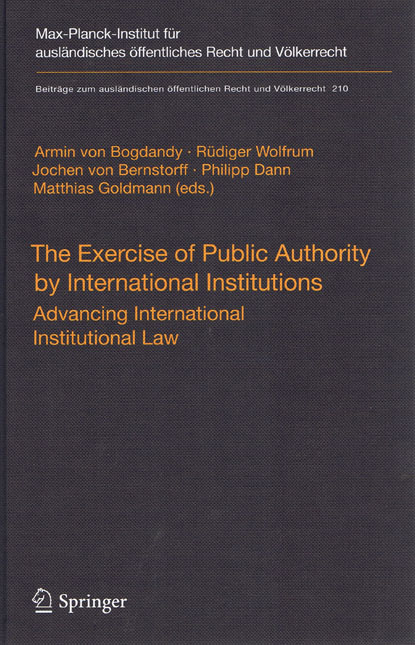
This book develops a framework for the legal analysis of global governance phenomena. Today, international institutions are responsible for more and more governance activities which cover a wide range of issue areas and which affect individuals and governments alike.
So far, there exists no legal, doctrinal approach to such phenomena. The dominant social science approach is unsatisfactory from a normative standpoint: it does not allow to single out those activities on the part of international institutions which compromise individual or collective self-determination.
To this end, the book proposes the concept of "international public authority." In a series of thematic studies, it identifies important hard and soft mechanisms that constitute unilateral exercises of power by the institutions of global governance. Cross-cutting analyses single out procedural and substantive principles which could become the corner stones of the further development of international institutional law.